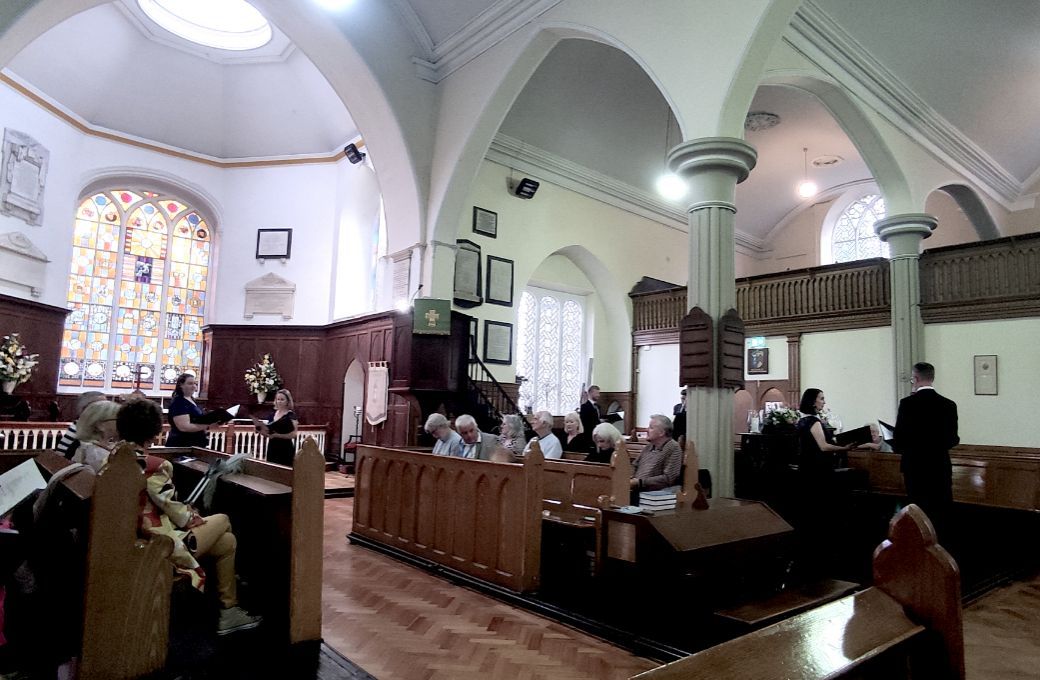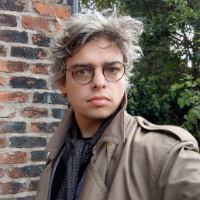Leopold Bloom gets out of the house on 16th June because of the necessity to get to the post office. Fumbling, tearing open envelopes on Westland Row, he scatters paper to the street. This Bloomsday, 80km to the north in Dundalk, County Louth, words jotted on torn envelopes would form the instigation for Chamber Choir Ireland’s performance, the opening concert of Louth Contemporary Music Society’s two-day festival. It was a greatly moving experience, with first performances of two significant new additions to the choral repertoire.

Canadian-American composer Linda Catlin Smith’s new commission sets a selection of the tiny, mercurial verses Emily Dickinson wrote on scraps of torn envelopes. Smith’s music has a plainness and tactility perfect for setting Dickinson. In this piece, Folio, harmonies are gathered, collated, placed alongside one another. Lines and phrases proceed like bundled sheets of paper.
Dickinson’s envelope poems capture her in an interior mood, musing on her own loneliness and mortality. Smith assembles passages from many poems into a kind of fragmentary monologue. Dickinson travels from an initial bleakness (“A great hope fell... I have no / Life but this / To lead”) to a qualified optimism (“words flowed / softly in like / a shining... This has been a beautiful day”). Yet one feels Smith is always at a distance: what concerns her is not Dickinson’s emotional condition, but rather her writing, its singlemindedness, its tactility, the graphite marks and sheafs of paper.
The choir, led by Paul Hillier, was remarkably solid, rhythmic precision and intonation greatly assured, with all the firmness of good carpentry. Nothing is indistinct. Superimposed open fifths suggest something planar and level, taut minor ninths are held fast. Much of Smith’s chamber and orchestral music resembles fabric, but this piece is not knotted or tangled – rather, its passages are bound, bundled, interlaminated.
Caroline Shaw’s work How to fold the wind is also concerned with paper, though it is notably different from Smith’s piece. Her music avoids interior monochromaticism, reaching instead for evocation and onomatopoeia. We hear the whispered and sibilant wind, we hear things sliding and expanding and folding outward, pushed and smeared THX-like.
Shaw often dwells in minor modes, before periodically letting in a burst of light and planed major triads. Later, we hear more open fifths – the movement is titled “In parallel”. Sometimes Shaw’s music can sound like Perotin or Dunstable, sometimes it sounds like indie or something on the radio in 1994.
The last piece was by Cassandra Miller, the second new commission on the programme. The City, Full of People sets a line from the Lamentations of Jeremiah, Ierusalem, convertere ad Dominum Deum tuum (Jerusalem, turn back to the Lord your God). Miller’s music frequently derives from transcriptions of existing music – in this case, the Lamentations of Thomas Tallis. Miller’s textures derive from layers of her own voice, singing along with Tallis while meditating: it is like witnessing Tallis through a gauze veil.
Spread out around the space, the 16 singers of the chamber choir were in small clusters, miniature congregations, their modular repetitions circling round and around. One group of sopranos processed up and down the aisle. Miller likes rounds (an orchestral piece is simply titled Round) – the music surrounds, you inhabit it. Divided into three long verses, each begins by dwelling at length in a minor mode, before a beautiful stepping down into the dominant major chord. It is like a gift. Clouds clarifying to reveal sunlight.
As the final verse ends, seagulls call from outside the church. Everything has obtained maximum clarity. It is a remarkable moment. “How lonely sits the city that was full of people.” We are alone but we are also together.
Lawrence Dunn’s press trip to Dundalk was funded by Louth Contemporary Music Society


